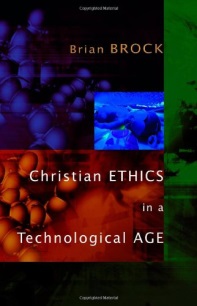Learning to read in cyberspace…

Some of the most important questions never get asked! Certain things seem so obvious that we never think to inquire into their nature. Reading is one of those things. It’s taken for granted that reading is for personal enrichment—words on a page provide entertainment, and they supply knowledge about a host of subjects.
But there’s more to reading than its utility—more than what it is for. Theologian Brian Brock would have us gain a deeper and broader understanding by asking about the nature—the essence—of reading: “What exactly is reading?”
Brock’s answer comes in an article that discusses how “new communication technologies are reshaping the church’s patterns of communion.” His concern is to understand the impact of internet culture on Christian worship. He points out that the question—“What exactly is reading?”—is finally a theological question, and he provides this answer as part of the broader discussion.
Reading is a forum in which we submit ourselves to others. We read them in order to hear their living voices. Such an account seems inescapably anachronistic to the mind trained to interact with a screen where one trolls, comments, surfs, or buys; one does not submit to being captured by another voice as they choose to present themselves. I recently talked to a professor of medicine who said that he encouraged students to have their computers open on the desk in lectures as it allowed them to “tune in to what they were interested in” and to “look up unfamiliar terms” or “check the accuracy of what they were hearing. Whether or not this is what students were doing online during lectures (and my observations suggest that they would much rather keep up with their friends on Facebook), I suggested that theology seeks to train students in a different sort of listening, one that is not content to sift, pick and choose from the outset, but to listen, understand, assimilate, and then, ideally, critically tease apart. The teacher of theology is not herself demanding this undivided attention, but scripture and the communion of saints who have handed it on to us.
Reading the fathers, medievals and reformers takes time, as does worship and listening to other congregants. To observe this is to set the concept of reading within the concept of entering a theological tradition, a worshipping community. Every time we do so we are forced to accommodate ourselves to the communicative forms in which we encounter each of these people, long and unwieldy treatises full of unfamiliar cultural assumptions in the one case, and the (often) inconvenient and time consuming interruption of our plans on the other or our difficulties in comprehending others’ unfamiliar ways of articulating themselves. If we want to be with other Christians, to be formed by them, we have to listen to them as they have presented themselves.
The theology that asks how God is claiming and confronting the present worshipping community amidst all its foibles must be a patient and attentive discipline. The forms, restrictions, and slowness of communities of scholarship that teach us to read and so hear the saints are not a hindrance to that attentiveness to God and neighbor that takes the form of thought, but rather they make it fruitful. God’s Word strikes home in a moment, but the work of attentive learning to hear the Cappadocians, to take one example, and the description and living out of what God reveals in this forum, is an extended labor of patient and faithful attentiveness. Christian faith lives and changes, or better, changes its hearers, as its tradition and scriptures become a living rule in the flow of life. This is a slow process of repentant rethinking in the context of a communal self-presentation to God, a repentance that dampens the value of unreflective opinion. Such theological sensibilities stand in stark contrast to current web culture in which thought is more valuable when more simultaneous, or when an unlimited number of voices participate.
Dr. Brian Brock’s article, “The Perils and Promise of Cyber-Church,” appeared in the online journal Second Nature (April 2013) and can be found here. It is a slightly different version of Chapter 6 in his book, Christian Ethics in a Technological Age (Eerdmans, 2013). Dr. Brock in lecturer in moral and practical theology at the University of Aberdeen, Scotland.


 September 3, 2013
September 3, 2013 







Excellent points Mike. The importance of physically present communion of the saints is a point worth making.